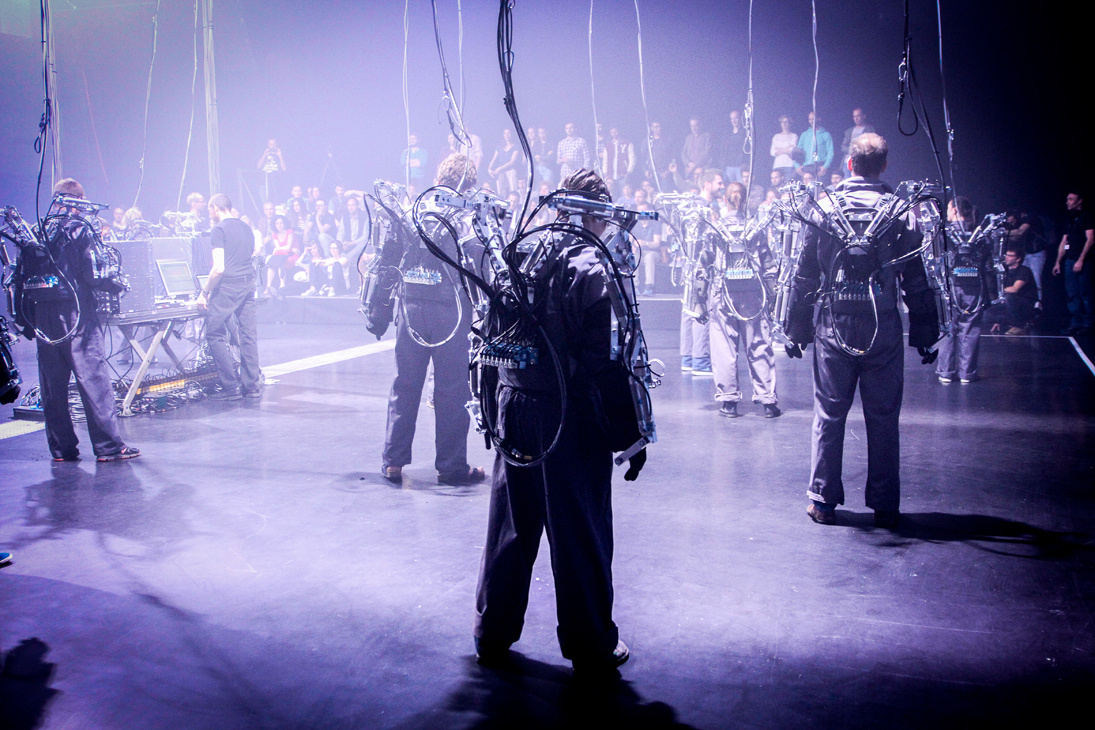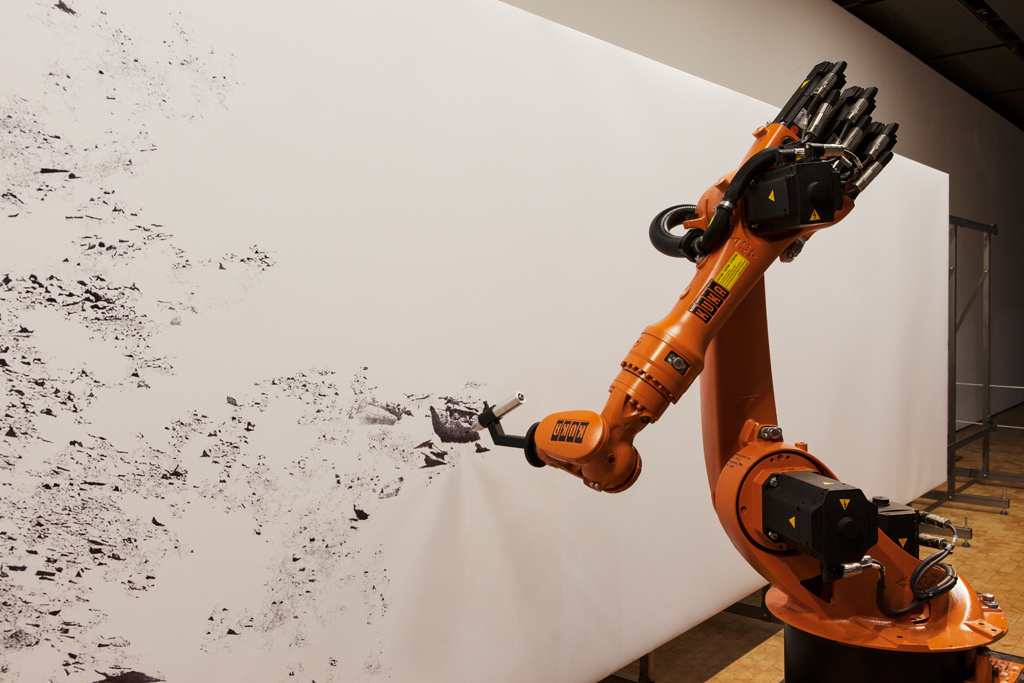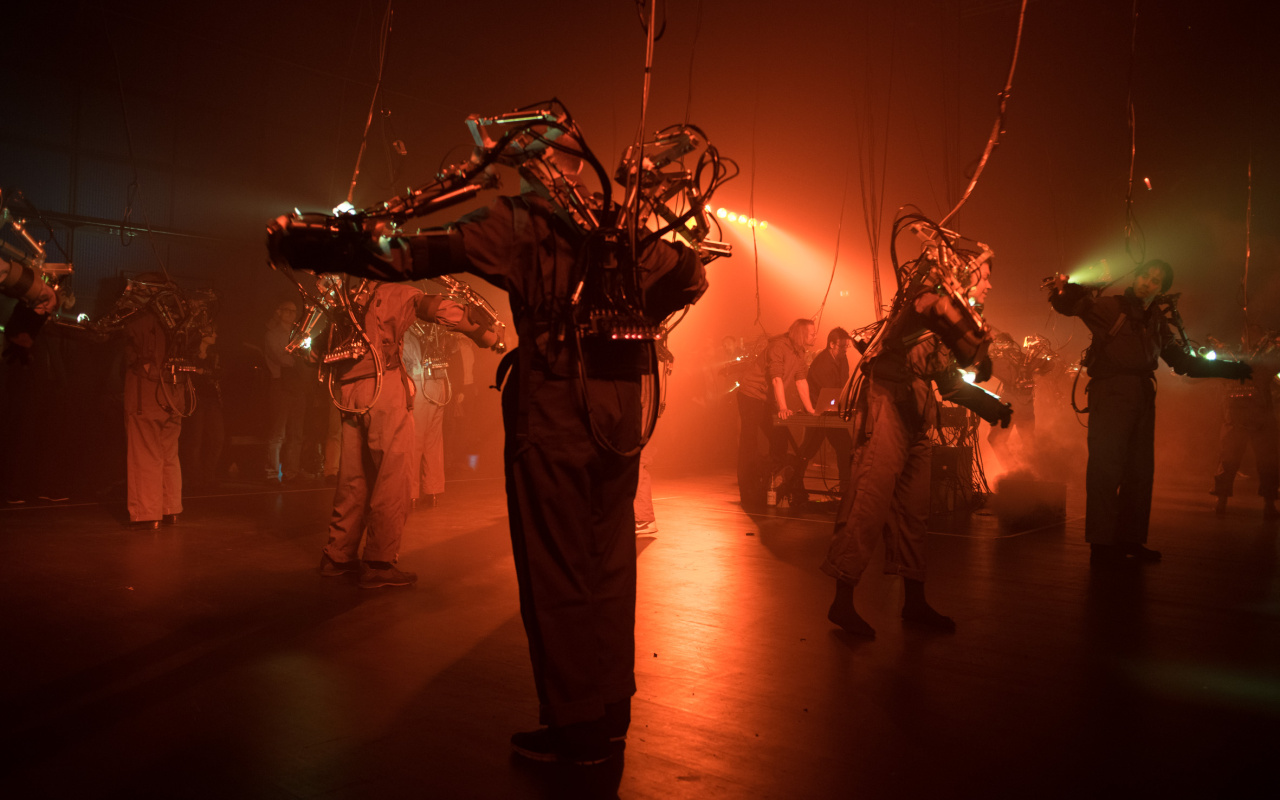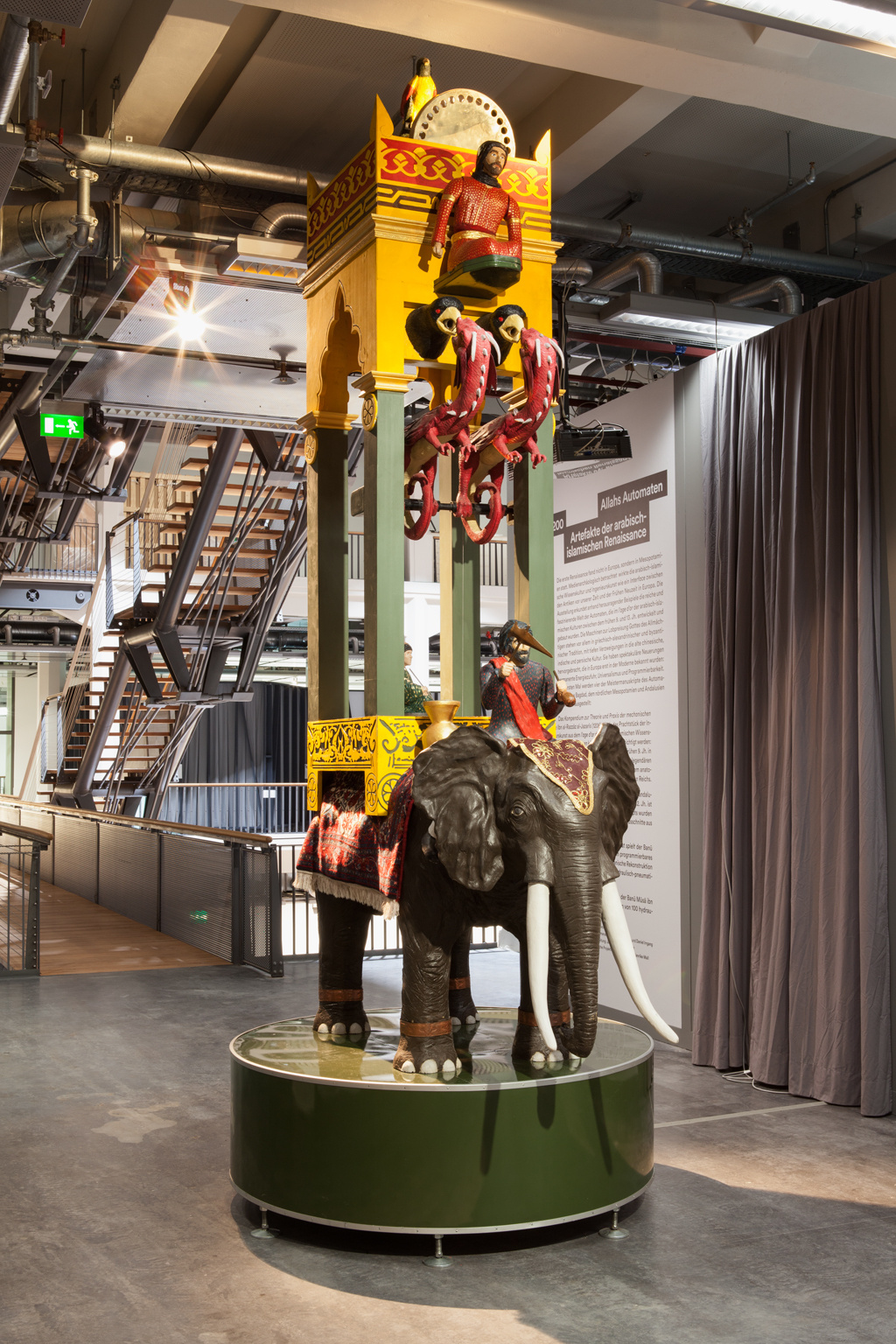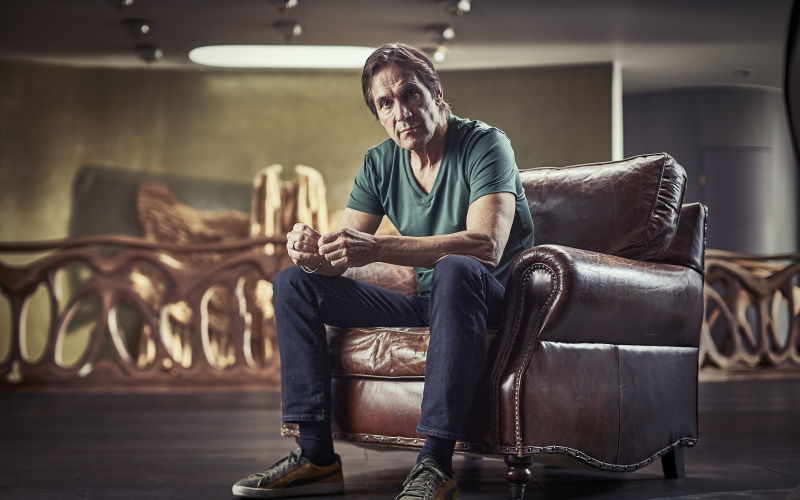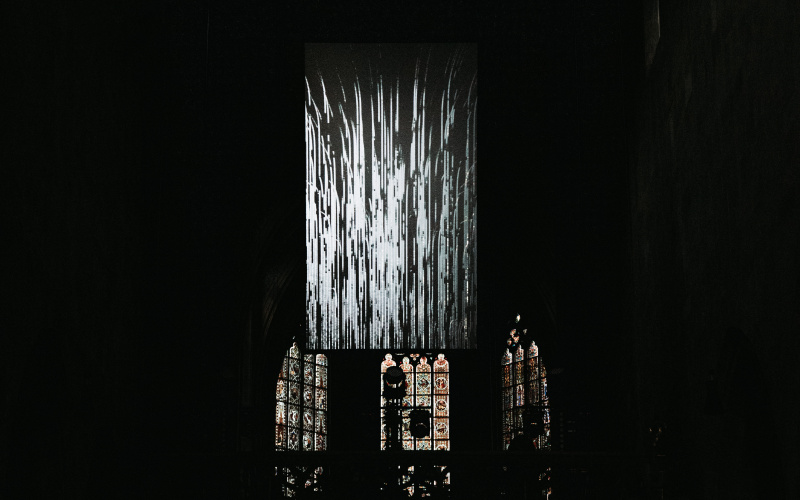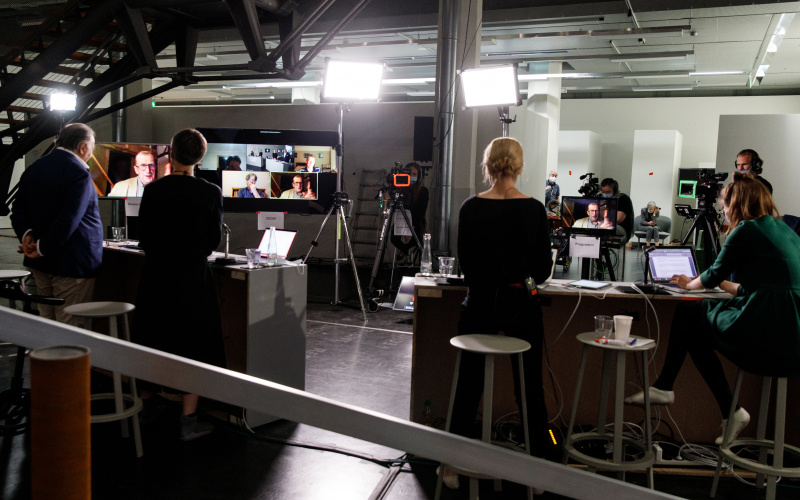Evolution remixed
– New exhibition »Exo-Evolution«
Exo-Evolution wants to be more than an exhibition. Exo-Evolution promises one thing.
BY MARIA MÄNNIG
Peter Weibel’s assertion is this: Technology is good for everybody and can actually solve the problems that mankind has created with it. Weibel illustrates this statement with Stephen Hawking as a prime example, who technology, not medicine, allows to communicate with the outside world and continue living in this way. At the same time, Hawking sometimes raises his critical voice, for example on the consequences of artificial intelligence.
In the ZKM, absolute optimism is pitted against any form of dystopia. »Retooling Evolution: Nature at Work« is the first experiment, which is taking place in a museum context in cooperation with the KIT. The aim of the trial is to condition bacteria, which can release sugar and other carbon compounds, on substances, such as Bisphenol A and glyphosate. The experiment means intervening in the evolution of microbes.
As well as artistic positions, the laboratory, which has been translocated into the museum, is at the interface of art and science. For »the big picture«, robotlab (Matthias Gommel/Martina Haitz/Jan Zappe) sees a robot tracing an image of the surface of Mars sent by Curiosity. The machine reproduces an image, which another machine created, which has been mechanically processed and sent. From one single line, a photo-realistic copy of the inverse image will be created over the duration of the exhibition. The work allows the reflection of this ultra-complex manufacturing procedure.
The »Inferno« performance (Louis-Philippe Demers/Bill Vorn) equips participants with remote-controlled prosthetic arms, whose movements and lighting effects are subject to the conductor’s whim. The synchronicity achieved through the extensions is confronted with the individual movements of the people.
The robotic ballet synthesises man and machine together in an unsettling manner. A connected primal fear is highlighted by Martin Schulz, the president of the European Parliament, when he warns of the “objectification of man”[1]. If nothing else, hell, to which the title of the work alludes, is considered a place with no freedom.
A journey through time in the past
It is an old dream of mankind to want to bring dead matter to life. Through Ovid, the Greek myth of the sculptor Pygmalion, who created a woman from a statue, reached medieval Europe. While the proverbial dark ages prevailed here, an advanced civilisation was shining in Persia. The »Allah’s Automata« section curated by Siegfried Zielinsky encounters a journey through time in this past that is characterised by technical innovations.
Between 800 and 1200, clocks and music automata were produced in Persia, virtual and analogue reconstructions of which can be seen in the ZKM. At that point, Bagdad was an important interface between the Western and Eastern cultures of knowledge. Much of what has been preserved here could be reactivated in modern times, making it part of our culture today and of the imminent future. In time loops, the exhibition seeks points of reference, with which the great narrative of technical innovations can be reflected and continued.
[1] Martin Schulz, Warum wir jetzt kämpfen müssen [Why we must fight now], in: Frank Schirrmacher, Technologischer Totalitarismus [Technological totalitarianism], Frankfurt/M. 2015, P. 12.
Category
News Category
- take a look… behind the scenes of ZKM
